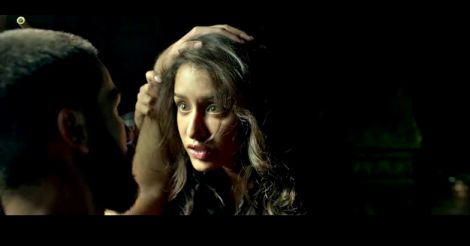Hamlet, roughly translated as ‘Haider’ in director Vishal Bhardwaj’s terms, rises above the banalities of cinema, to an extent. But then again, one wonders how it would have looked like if we weren’t forewarned that it was an adaptation of yet another one of the bard’s classics. If it wasn’t for the grandeur demanded of it, would it have garnered such attention?
After a stunning ‘Maqbool’ along Mumbai lanes, and the beautifully layered ‘Omkara’ set against the backdrop of Uttar Pradesh, Bhardwaj treads on new turf when he places Haider right in the middle of strife-torn Srinagar. His version of Hamlet is the madness in Kashmir. Political references are brazen and even cheeky at times!
Haider/Hamlet (Shahid Kapoor) comes back home to his father’s (Hilal/King Hamlet) disappearance, and his mother Ghazala/Gertrude (Tabu), who has started living with his paternal uncle, Khurram (Kay Kay Menon) much like the Hamlet scenario. Haider wants to search his ‘Abbu’ out from the thousands of captives. Amid separatists and militants, insurgency and terror, the screenplay is a stark and severe picture of war-torn Kashmir. Bhardwaj delves in and takes bold shots at the situation, the Indian army, and the separatists’ movement, his most political film till date, undoubtedly.
 Shahid Kapoor and Shraddha Kapoor in a scene from the film Haider.
Shahid Kapoor and Shraddha Kapoor in a scene from the film Haider.The first half moves at a glacial pace, to be in tune with the film, and it ends with Irrfan Khan making his entry pulling a brilliant satire on the tradition of ‘security checks’. Through the first half, Haider struggles to set the tone; yes, he is disturbed, and is passive-aggressive, but doesn’t seem to progress from those points.
In the second half, the play, sorry movie (it does feel like a play in parts) unravels its (true) colours. What Bhardwaj accomplishes, and it has to be credited with much respect to his direction, is how he brought to full immaculate swing the two acts of Shahid Kapoor. The solo act that was perfectly balanced in terms of narrating the madness and the expression of it. Bhardwaj capitalised on the so-called ‘madness’ of Hamlet, and his confused status (also claimed to be a put on) strikes us as an uncanny yet sturdy portrayal.
Yet, it could have been made more convincing. The play in a play scenario begot the grandeur it deserved. And that is what makes the third of this trilogy good; Haider had to be dramatised to a large extent. Unlike Maqbool, where two policemen played the part of the angels that Shakesphere had intended, in ‘Haider’ we do get a glimpse of the apparition that the bard talks about. This does bring out the fabled aspect into play.
As for performances, (this could be a separate chapter considering it’s a Vishal Bhardwaj flick) Shahid Kapoor nails it in both his ‘acts’, with not one misplaced smile or tear; they merge together on the perfect pitch where the actor scores with his magnificent shots. Although his (Hamlet/Haider) existential dilemma and political stance interact way too much when he keeps saying “Hum hain ki nahin”. Kay Kay Menon pitches in well, and so does Irrfan Khan, but some of the scenes seem a bit too contrived and detailed.
The limited detailing of Bhardwaj’s previous outings come to mind. Gazila played by Tabu is characterised well. She brings to mind Maqbool’s Nimmi, but at the end where the tale is tweaked, and made different from the bard’s story, she proves to be a character that you can grasp fully—be it the woman who succumbed to love, or who made a joking reference to her son of him wanting to marry her when he was young.
In all, the poetry of Hamlet is captured well, and Bhardwaj’s masterful insight lends depth to the frames, layered, blazing and metaphorical. However, in terms of soul, I give it to the man behind ‘Omkara’ and ‘Maqbool’.
Rating : 3.5/5

































































.jpg.image.160.84.jpg)

























































































































































































































































































































































































































































































































































































































































Disclaimer
The comments posted here/below/in the given space are not on behalf of Manorama. The person posting the comment will be in sole ownership of its responsibility. According to the central government's IT rules, obscene or offensive statement made against a person, religion, community or nation is a punishable offense, and legal action would be taken against people who indulge in such activities.